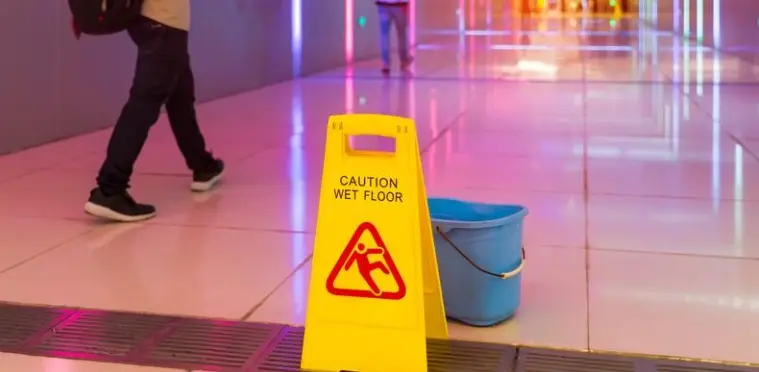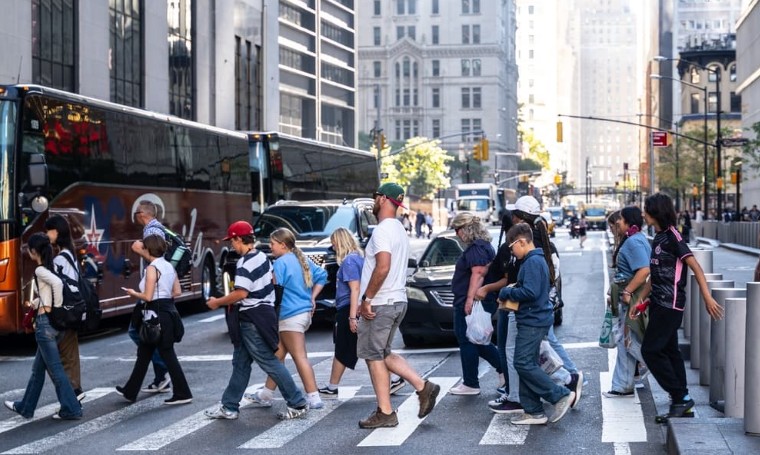
Mediation in personal injury settlements can be an option if insurance companies are known for being tough negotiators, often trying to minimize payouts, and sometimes don’t offer enough to cover your damages. Therefore, mediation in personal injury settlements could be an option.
What Is Personal Injury Mediation?
A mediator is an unbiased third party brought in to help settle a personal injury claim when negotiations break down, often after a lawsuit has been filed. Both the claimant and the insurance company agree voluntarily to try resolving the dispute through an alternative method instead of going to trial.
In many states, personal injury mediators must pass a certification program. These experts in the field, often former trial attorneys or judges, play a crucial role in guiding both parties on how they think a jury and judge would react to the case. Importantly, mediators don’t decide the case, allowing both parties to continue negotiating or proceed to court if mediation fails to produce a settlement
How Is a Mediator Selected?
Both parties must agree on selecting an impartial mediator for the case to ensure fairness in the mediation process for personal injury claims. Your lawyer and the defense will be seeking a mediator without any conflicts of interest. The success of mediation relies on both sides trusting the mediator, and it won’t work if either side views the mediator as unreliable.
When there’s trust in the mediator, both parties are more likely to listen to each other’s opinions. The defense may become more cooperative if the mediator points out weaknesses in their case. Similarly, if the mediator identifies weaknesses in your case, you might be more inclined to accept a lower settlement instead of risking an unfavorable court decision. Mediators actively encourage parties to communicate and collaborate towards a resolution.
What Is Personal Injury Mediation?
Personal injury mediation is a straightforward process. Get ready for it by preparing yourself.
1. Signing A Confidentiality Agreement
Before mediation can start, all parties must sign a confidentiality contract. The mediator, the plaintiff team, and the defense team need to agree to this confidentiality arrangement.
This contract ensures that everything discussed during mediation stays private and can’t be used in court against any party. This assurance encourages everyone to be more open in order to reach a settlement agreement.
For instance, if you agreed to a certain amount during mediation but later asked for more money at trial, your defense can’t bring this up in court. Doing so could make you look unreasonable. The confidentiality agreement works both ways; you can’t use the defendant’s words against them if they admit fault during mediation but deny it in court.
2. Opening Statements Are Made
For the mediator to provide an informed opinion on the claim, they need to understand both the defense’s and plaintiff’s perspectives, along with the evidence each party presents. During the mediation, the mediator allocates specific time for both the plaintiff and the defendant to make their opening statements.
The duration of these statements can vary from a few moments to several hours. The defense typically gives a summary, highlighting any coverage or liability issues, disputing injuries or treatments they find unrelated or unreasonable, and explaining how they assessed the value of the claim.
This might be their only chance to address you, and they might try to make you doubt the strength of your case to convince you to accept a lower settlement. Your lawyer will counter this by explaining your side of the story, emphasizing why you deserve the requested compensation. They’ll cover details such as the accident’s fault, the extent and impact of your injuries, and your overall life experience.
3. Mediator Consults With The Plaintiff and Defense
After the opening statements, the mediator will separate the plaintiff and the defendant into different rooms, allowing them to speak freely with each side without interruption.
The mediator shares information gathered by the defense with the plaintiff’s lawyer and vice versa. They’ll ask the plaintiff about the lowest settlement they’re willing to accept and may request supporting evidence like photos of injuries and detailed accounts of how these injuries have impacted their lives. The mediator will also point out any weaknesses they see in the plaintiff’s case.
On the other side, the defense looks for reasons why the case value should be less than requested. They might present findings from an independent medical examination, offer an alternative account of liability, or express doubts about the plaintiff’s reliability. The mediator’s goal is to figure out the maximum settlement the defense is willing to consider.
The mediator will move between the rooms as needed, working to reach a consensus. They use facts and arguments from the case to convince both sides during this negotiation process.
4. Deal Is Reached
If the mediator successfully helps both parties reach an agreement, they will sign a letter of intent or agreement outlining all the terms to formalize the settlement. As part of this process, you’ll sign a release, committing not to pursue further legal action. Subsequently, the lawyers will prepare the necessary paperwork to inform the court about the settlement.
5. Mediation Fails
In some instances, personal injury mediations may not lead to an agreement, and the case remains open. While not ideal, it doesn’t necessarily mean starting over.
Both sides can gain insights during mediation that may impact their decision on whether to proceed to trial. Following mediation, negotiations can still carry on with the possibility of reaching a settlement without going to trial.
If, in the rare case, an agreement cannot be reached on mediation in personal injury settlement, your lawyer will get ready for a personal injury trial.
Prepare For Personal Injury Mediation
During mediation, your lawyer will handle the majority of the work, including making the opening statement, advocating for you, and presenting your case. However, your role is still crucial in shaping the outcome of your personal injury mediation. Here are some tips to help your personal injury case during mediation:
- Summarize the events leading to the accident. This will help clarify facts and ensure you don’t forget any important information, especially if liability is being disputed. Use photos to support your story.
- List how the accident affected you, including specifics like lost work, chronic pain, or impacts on personal relationships. Discuss how the accident continues to affect you.
- When the defense speaks, control your emotions. Defense lawyers may use inflammatory language to provoke a reaction. Remaining calm shows you as a respectful witness, not easily swayed.
- Be open-minded about the defense’s arguments and the mediator’s words. You may learn something new during mediation. If the court decision seems more favorable than a lower settlement offer, consider taking it.
- Avoid getting angry with the mediator. Trust their opinion if your lawyer has done their job well. Getting upset may only delay the settlement and harm negotiations when they point out weaknesses in your claim.
- Dress professionally to present yourself in the best light. First impressions matter, and presenting yourself professionally gives the defense less ammunition to attack your credibility.
Since personal injury cases are more likely to go to mediation than court, preparing for this process is essential to secure the best settlement.
Questions About Personal Injury Mediation
Personal injury mediation is often an alternative to a court trial. Here are some common questions plaintiffs typically ask about the mediation process.
What % Of Cases Are Settled Through Mediation?
Mediation in personal injury cases typically happens when the stakes are high, and the case is on the path to trial. Mediation often succeeds because both parties prefer avoiding the uncertainty of a trial. While there aren’t precise statistics on mediation effectiveness, we do know that 96% of all personal injury cases are settled out of court.
What Is The Difference Between Mediation & Settlement?
Mediation for personal injury is just one step in the process of reaching a settlement. If independent negotiations between the plaintiff and defense break down, they may opt for mediation as an alternative to going to court.
Does A Mediation Agreement Have Legal Binding Power?
Mediation can be either non-binding or binding. In non-binding mediation, a settlement is only reached if both parties agree. In binding mediation, the mediator acts like a judge, and their decision is binding for both parties.
When non-binding mediators are used (the most common option), and an agreement is reached, it must be honored. If mediation fails, independent negotiations can resume, or the option of pursuing a trial remains.
Do I Have To Go To Mediation for Personal Injury Cases?
Personal injury mediation is a voluntary process. If both parties can’t agree on a mediator, the process can be avoided. Sometimes, a judge may mandate that parties attempt mediation before proceeding to trial. Contracts may include arbitration clauses, making mediation a common solution. However, it’s rare for arbitration clauses to be binding in personal injury claims.
Who Pays for Personal Injury Mediation?
The costs for a mediator are typically shared between the plaintiff and the defendant. Mediators usually charge a flat fee, so you won’t have to pay an additional percentage of your settlement.
Explore the Path to Resolution: Let Tenina Law Hold Your Mediation In Personal Injury Settlements
Personal Injury Cases We Handle
- Car Accident
- Motorcycle Accident
- Wrongful Death
- Dog Bite
- Boat Accident
- Truck Accident
- Train Accident
- Bus Accident
- Slip and Fall
- And more!







[…] as quickly as possible. We will make sure that the insurance companies do not delay your settlement and treat you fairly. We offer a free consultation so you can learn more about how we can […]
[…] a claim for personal injury and seek a settlement from the party responsible. What is the average personal injury settlement? California personal injury settlements vary depending on a variety of factors. Learn more about […]